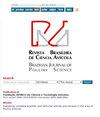The official EFL textbook in cameroonian technical schools and the needs of dressmaking students: an evaluation of interactions in English lère
IF 1.1
4区 农林科学
Q3 AGRICULTURE, DAIRY & ANIMAL SCIENCE
引用次数: 0
Abstract
The present paper examines the contents of the Premiere textbook of EFL in order to find out if it fits the needs and interests of the students of the technical fields such as bespoke tailoring and dressmaking. Over the years, the indifference of technical students towards English has been a topical issue and still raises debates nowadays. The aim of this paper is to show that the existence of a single book for all Premiere classes can account for the lack of interest in English generally observed in technical schools. Emphasis is laid on the analysis of themes, the reading passages and the selection of pictures in Interactions in English Ière. In other words, this research attempts to show that the official textbook of English for francophone technical education is not tailored to the needs and interests of the learners. The research methodology consisted in reading and analysing the selected corpus in a bid to find out if its content pleases the intended audience made up of dressmaking students. The EFL students and teachers were also interviewed in order to probe their attitudes towards the selected English book. The paper ends with suggestions on how to improve on the English book for that specific set of students. The aim is to raise more awareness in the educational circle, create more motivation in the target learners and ameliorate their performances in English.喀麦隆技术学校官方英语教材与服装专业学生的需求:英语教学互动评价
本文考察了英语初级教材的内容,以了解它是否适合技术领域学生的需求和兴趣,如定制剪裁和服装制作。多年来,工科学生对英语的冷漠一直是一个热门话题,至今仍在引发争论。这篇论文的目的是为了证明,所有的初级课程都有一本单独的书,这可以解释为什么在技校中普遍观察到对英语缺乏兴趣。重点介绍了《互动英语》的主题分析、阅读段落和图片选择。换句话说,本研究试图表明法语国家技术教育英语的官方教科书并没有根据学习者的需求和兴趣量身定制。研究方法包括阅读和分析选定的语料库,以找出其内容是否取悦了由裁缝学生组成的目标受众。我们还采访了英语学生和教师,以了解他们对所选英语书的态度。文章最后提出了针对这部分学生如何改进英语教材的建议。目的是提高教育界的认识,激发目标学习者的学习动力,提高他们的英语水平。
本文章由计算机程序翻译,如有差异,请以英文原文为准。
求助全文
约1分钟内获得全文
求助全文
来源期刊

Brazilian Journal of Poultry Science
农林科学-奶制品与动物科学
CiteScore
1.80
自引率
9.10%
发文量
60
审稿时长
>12 weeks
期刊介绍:
A Revista Brasileira de Ciência Avícola surgiu em 1999 a partir da necessidade que a comunidade científica possuía de um periódico para veiculação e publicação de seus trabalhos, com a publicação de três números anuais.
A Revista conta hoje com um corpo editorial altamente qualificado e com artigos científicos desenvolvidos pelos maiores especialistas da área, o que a cada dia atrai mais leitores em busca de inovação e respaldo técnico.
Devido à credibilidade que conquistou pelos esforços de sus autores, relatores e revisores, a Revista ganhou caráter de coleção, sendo consultada como fonte segura de estudo desenvolvidos na Avicultura.
A partir de 2003 – volume 5 -, a Revista passou a chamar-se Brazilian Journal of Poultry Science, e todos os trabalhos passaram a ser publicados em inglês. No mesmo ano subiu para quatro o número de revistas por volume, ampliando-se assim os trabalhos publicados anualmente.
 求助内容:
求助内容: 应助结果提醒方式:
应助结果提醒方式:


